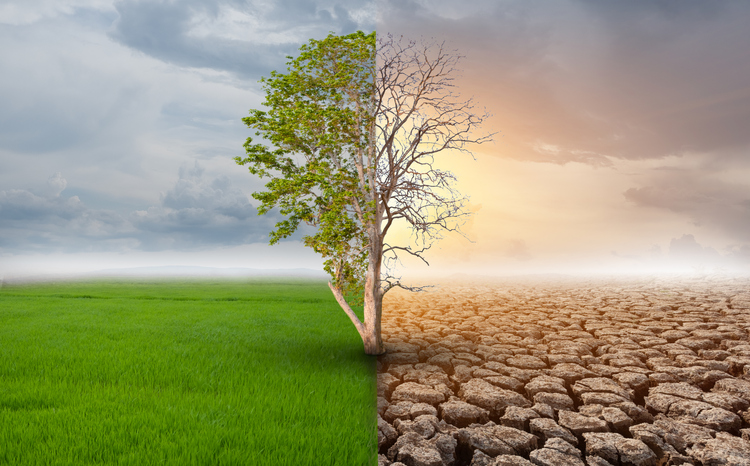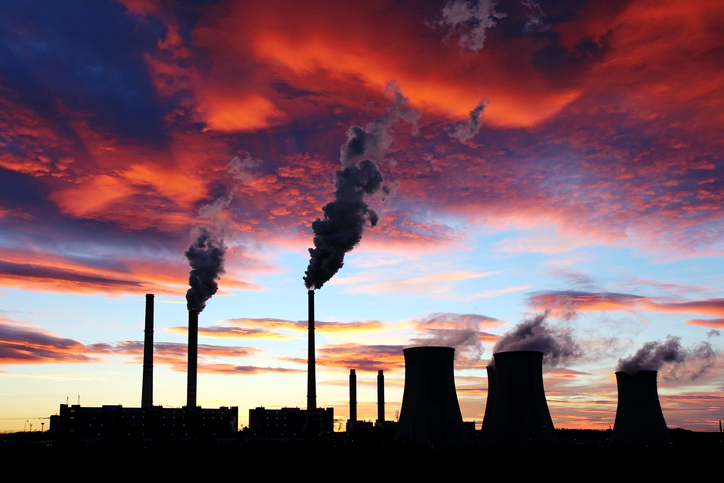Today, the effects of climate change are becoming increasingly prevalent, and there is no denying that human activity is the root cause (Raypole, 2020). According to the United Nations, we can expect to see a 16% increase in carbon emissions by 2030, instead of the reduction that would have been needed to maintain the internationally agreed-upon global heating limit (Gregory, 2021). If that statistic stresses you out, you are not alone.
What is “Exo-anxiety”? While not yet considered a diagnosable condition, it is a form of chronic stress that has been on the rise in recent years. The term is used to describe a general pattern of anxiety as a response to the effects of human-influenced climate change on the environment (MediLexicon International, 2019). Surveys have shown that the “psychological burden” of coping with the impending climate crisis is affecting higher numbers of young people around the world, with perceived inaction from world leaders creating feelings of hopelessness for many (Gregory, 2021).
If you are pursuing a career as a professional counsellor, you are likely to encounter clients suffering from this unique form of anxiety. Below, discover more about the sources and symptoms of eco-anxiety, as well as how you can help your clients to manage it.
Eco-Anxiety: Where it Comes From and What it Feels Like
Although many of us may feel some climate-related stress, for those suffering from eco-anxiety, this stress is perpetually heightened, resulting in feelings of existential dread, hopelessness, obsession, panic, grief and obsession (Raypole, 2020). Aside from the obvious cause, eco-anxiety can be exacerbated by increased media coverage of the climate crisis or feelings of shame over one’s lifestyle practices (Raypole, 2020).
While anyone can experience eco-anxiety, as a counselling therapist, it is important to acknowledge that some people’s symptoms may be related to the direct effects of climate change (MediLexicon International, 2019). People who have suffered from floods, fires, loss of food and other climate-related disasters are more likely to experience eco-anxiety, especially if they have been displaced, are Indigenous or are of lower socioeconomic status (MediLexicon International, 2019). Their experiences may manifest as post-traumatic stress disorder, depression, shock, substance abuse and more, in addition to general anxiety symptoms (MediLexicon International, 2019).
Strategies to Help Clients Manage Eco-Anxiety as a Counselling Therapist
After getting your professional counselling diploma, there are many strategies you can implement in order to help your clients manage their eco-anxiety. As a first step, reassuring your clients that their anxiety is a reasonable response to the climate crisis may help them to put their feelings into perspective (Klearminds, 2021). By focusing only on what they can actually control, and practicing self-compassion in response to feelings of guilt or shame, clients can begin to develop a response to their anxiety (Klearminds, 2021).
Another strategy you can suggest to your clients is taking action within their own communities, as positive action can mitigate feelings of hopelessness and dread (MediLexicon International, 2019). Clients might consider volunteering with a local environmental organization, developing their own recycling and composting regimen or transitioning to a more sustainable diet (MediLexicon International, 2019). Helping clients to develop the tools for self-compassion, as well as identifying some ways that they can take action in their everyday lives, can be a starting point for combating eco-anxiety as a professional counsellor.

After getting your professional counselling diploma, you can help clients experiencing climate-related anxiety
What to Keep in Mind When Working With Clients With Eco-Anxiety
While the strategies mentioned above can be helpful in coaching clients, as a counsellor, it is important to remember that it is normal to feel unprepared to help clients cope with eco-anxiety. Mental health professionals are facing uncharted territory with climate-related stress, and the learning curve is significant (Whitcomb, 2021). For counsellors who are still trying to process the reality of climate change on their own terms, attempting to help clients can be a daunting task (Whitcomb, 2021).
While the field is still developing, the ground is being laid for the application of a new lens when speaking with clients suffering from eco-anxiety (Whitcomb, 2021). This lens focuses on approaching clients’ relationships with the environment as any other significant relationship in their lives, exploring their anxieties in the context of a global climate crisis (Whitcomb, 2021). Throughout your counselling career, applying this lens could be helpful when developing a course of treatment for clients expressing fears about climate change.
Are you ready to enroll in registered clinical counsellor training?
Build the skills to help your clients at Rhodes Wellness College.
Works Cited:
Gregory, A. (2021). ‘eco-anxiety’: Fear of environmental doom weighs on young people. The Guardian. Retrieved January 25, 2022, from https://www.theguardian.com/society/2021/oct/06/eco-anxiety-fear-of-environmental-doom-weighs-on-young-people
Klearminds (2021). What is eco-anxiety and how can you manage it? Klearminds. Retrieved January 25, 2022, from https://www.klearminds.com/blog/what-is-eco-anxiety-and-how-can-you-manage-it/
MediLexicon International (2019). Eco-anxiety: What it is and how to manage it. Medical News Today. Retrieved January 25, 2022, from https://www.medicalnewstoday.com/articles/327354#how-to-manage
Raypole, C. (2020). Eco-anxiety: Symptoms, causes, and how to Cope. Healthline. Retrieved January 25, 2022, from https://www.healthline.com/health/eco-anxiety
Whitcomb, I. (2021). Therapists are reckoning with eco-anxiety. Scientific American. Retrieved January 25, 2022, from https://www.scientificamerican.com/article/therapists-are-reckoning-with-eco-anxiety/











